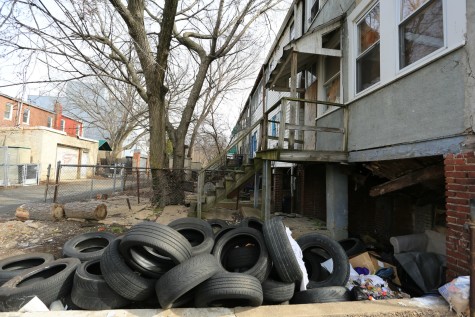In Colorado, honesty is history
photo by Amanda Hendrix
LB AP US History, like all US APUSH classes, are using the same curriculum that is being reconsidered in Colorado.
American history is ugly. Starting from the nation’s founding and continuing all the way to the present day, this country’s image is tarnished by violence and inequality that often gets glossed over in most history classes.
In an effort to shed more light on this side of history, the College Board has recently implemented a new framework for AP U.S. History that places increased emphasis on more controversial issues such as conflicts between early settlers and Native Americans, the debate over abortion and the current war on terrorism.
Conservatives have expressed vehement disapproval of the “revisionist” changes, insisting that it lacks an emphasis on “American exceptionalism” and focuses too much on America’s faults. The largely conservative school board in Jefferson County, Colorado has even expressed its desire to edit the curriculum, citing that the ideal U.S. history course should not “encourage or condone civil disorder [or] social strife.” However, this push to censor the new history course is fundamentally un-American.
Civil disorder and social strife, the very things that the Jefferson County School Board fears, are the drivers of societal change. Without the Occupy Wall Street movement or the Ferguson riots, economic and racial inequality wouldn’t make it into mainstream political rhetoric. Refusing to teach students about these aspects of American life is essentially turning a blind eye to these problems and wishing them away by not talking about them.
This country was founded on the idea that citizens can be critical of their government. Opponents of the AP U.S. History changes are essentially suggesting that the right to disapprove of government actions, past or present, should be inhibited. Instead, according to dissenters, students should be force-fed a love of their country and see no faults in their leaders and the laws they enforce.
Protecting today’s youth from America’s past transgressions will not erase the damage inflicted by the United States during its centuries of institutionalized racism and sexism. While this country has made sizeable progress in its treatment of those who are not straight white males, the nation is far from perfect. Women still lack bodily autonomy, and many racial minorities still face discrimination 50 years after the passage of the Civil Rights Act.
Sitting in current AP U.S. History classes is this nation’s future. In just a few years, current students will be of voting age, and some may even go on to become our country’s leaders. What will our country’s future look like if these members of our society have only a shallow understanding of the injustices America has committed and continues to commit? The refusal to teach history in a truthful manner leaves room for us to repeat it.
There’s no problem with teaching students the good aspects of American history, as there are many positive changes that have occurred since this nation was born. However, enforcing blind patriotism in our schools pushes this nation frighteningly close to a 1984-esque society.




